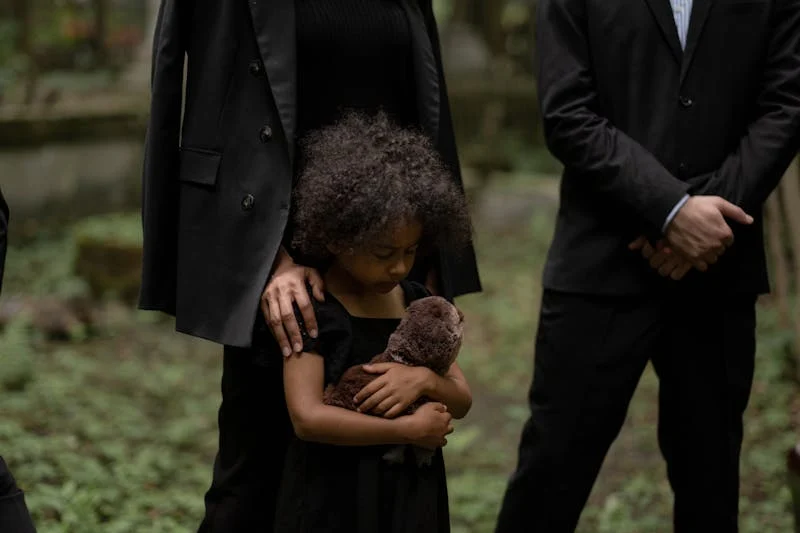If your partner dies, not only do you have your own response and emotions to deal with but also those of your children.

Death and the Impact on Children
If your partner dies, not only do you have your own response and emotions to deal with but also those of your children. You may all be grieving for the same person, but each will do it in their own, unique way.
How do children grieve?
Children and young people grieve just as deeply as adults, but they show it in different ways. They can be intensely sad one minute, then suddenly switch to playing happily the next.
Normal grief in children may include behaviours such as being naughty or very good, problems with sleeping, being clingy, regressing to being younger or trying to be grown-up and wanting to please. Anger is a common response. Teenagers may spend long periods of time being either very withdrawn or frantically socialising. These behaviours are only cause for concern if they go on for a long time.
Young children find it difficult to grasp that death is permanent and expect the dead person to return. You may have to repeat the information many times. A teenager has adult understanding but may feel quite overwhelmed with responses they neither understand nor expect. They can also find it hard to admit they need support.
Death of an ex-partner
The nature of the relationship you or your children had with your ex-partner will have a significant impact. Unresolved issues will make their grieving harder. Children may have mixed and confused emotions, particularly if they feel a parent has let them down, but their grief can still be deeply felt.
Even when a child has had little or no contact, they may still be very affected by the death. Relationships between children and parents may change shape but for a child, the parental bond usually remains.
To help you cope:
Children need information and explanations that are honest, simple and in language they understand. Use the word “dead” rather than “asleep’ or “lost” which will cause confusion.
You are now parenting on your own. Whatever you think of the term “single parent”, find and accept all the single parent support that you can.
Grief is exhausting for children and adults. Go easy on yourself and accept all offers of help. Being a good enough parent is being a great parent. It is a natural instinct to try to protect children but they need you to be a role model, not a hero so don’t be afraid to show any upset.
Try to focus on your child’s need to grieve for his/her parent rather than any negative thoughts you may have about him or her. If you don’t have sad feelings, be honest and recognise with the children that how you feel might not be how they feel. Reassure them that this OK and try to be supportive and understanding of their sadness.
A child may be anxious that you too are going to die. As a single parent you are doubly important to them, increasing the anxiety. Reassure them that this is very unlikely but as one parent has already died, they may struggle to believe this. Compile a list together of all the people who would look after them should anything happen to you. This should help give confidence that they would be safe and looked after.
Be kind to yourself and try to leave time for small treats or rewards.
Getting additional support
You have a lot to deal with and feeling overwhelmed is understandable. To support your children you need to have support for yourself. Take a look at the following resources:

